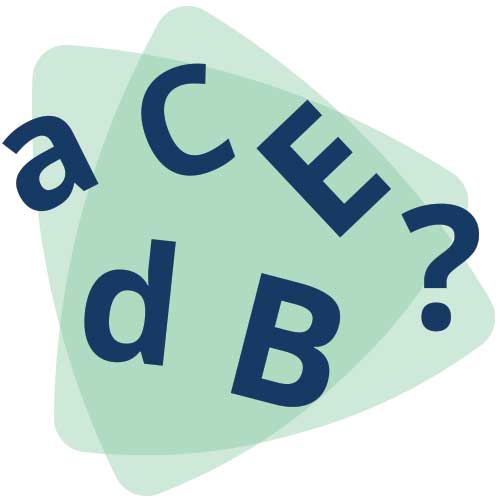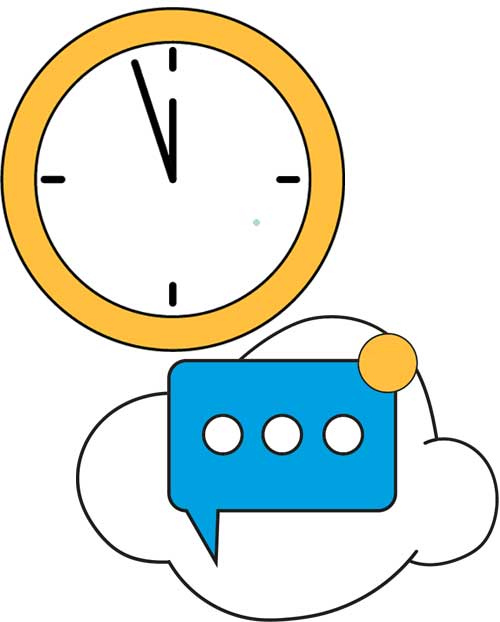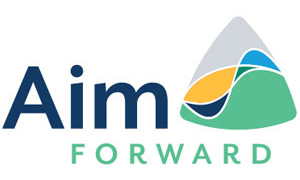Dyslexia
Dyslexia can affect your reading and writing, memory, concentration, organisation and communication. Getting a diagnosis or support through a dyslexia assessment can help you to work and study your way. Here you can find some common questions on dyslexia.
Diagnostic assessments
Our diagnostic dyslexia assessment can tell you if you are dyslexic.
We can offer remote video assessments or in-person appointments in Yorkshire.
Needs assessments
If you have been diagnosed as dyslexic or believe you are dyslexic, our one-to-one online needs assessments aim to understand how you currently learn and work, then create personalised strategies and recommend assistive technologies that will help you excel.
What is Dyslexia?
Dyslexia is a specific learning difficulty (SpLD) caused by a neurological difference, meaning a difference in the way the brain works between dyslexic people and non-dyslexic people. It may be more common than you think. It’s estimated that 1 in 10 people may be dyslexic to some extent, but we still don’t fully understand it. Most people only associate dyslexia with difficulties in reading, writing and spelling, but it’s a myth that it only affects those abilities.


Many dyslexic people also experience an impact on their:
- Memory
- Organisation
- Time-keeping
- Concentration
- Multi-tasking
- Communication
Dyslexia is highly heritable, which means that if one or both of your parents are dyslexic, you are more likely to be dyslexic too. Research from identical twin studies suggests that genes could make up to 60% of the factors that contribute to a person being dyslexic.
It has been suggested that there might be different ‘types’ of dyslexia or that dyslexia exists on a spectrum, although there is little research on this. What is important to remember is that every dyslexic person is different, so they may not experience difficulties in all of the areas listed above, or all of the time. Many dyslexic people develop their own coping strategies, which can mask these difficulties at work, in their learning or in their social lives.
Research has also shown that dyslexic people often have greater strengths in non-verbal creativity than non-dyslexic people, so they may excel in work and learning that centres around design, art and audiovisual media.
Looking for information about dyslexia diagnosis
How is dyslexia assessed?
During a diagnostic assessment for dyslexia with Aim Forward, you will be asked to complete several tasks. These are not pass or fail tests – they are designed to highlight indicators of dyslexia, your cognitive profile and your strengths and weaknesses.

The following areas will be explored:
- Language and practical tasks
- Memory
- How long it takes you to process information
- Reading ability
- Writing and spelling skills
The diagnostic assessment also involves a background information questionnaire, which is completed before the diagnostic assessment and provides the assessor with information about your educational background, medical history and any previous assessments.
The diagnostic assessment for dyslexia will be provided by a qualified assessor, who is either an educational psychologist registered with the HCPC or a specialist assessor with an Assessment Practicing Certificate.
How do I get an assessment for dyslexia?
Anyone over the age of 14 can be assessed for dyslexia with Aim Forward, simply by booking a diagnostic assessment with us. In the UK, a diagnosis of dyslexia is not a medical diagnosis. It is not assessed by medical professionals, but by educational psychologists or specialist assessors. You do not need to meet specific requirements or show us evidence before you book.
After booking your assessment, we will send you a background questionnaire to complete: this helps give our assessors a big picture of key aspects of your life which might relate to your neurodivergence, including medical history, experiences in working and learning and anything you know you have difficulties with.
Based on your background questionnaire, if your assessor thinks you might have traits of other specific learning difficulties (SpLD) such as ADHD, dyspraxia or dyscalculia, they may recommend completing additional questionnaires and testing in order to assess for these as well. It is your choice whether you chose to progress only with a dyslexia diagnostic assessment, or to explore the possibility of other diagnoses too. Our support team can guide you through this and help answer any questions you may have.
What are the benefits of a dyslexia assessment?
Identifying yourself as being neurodivergent does not require a diagnosis and is supported by many in the neurodivergent community. Having said this, some people feel that they would benefit from having specific terms for their experiences and access to support schemes such as Access to Work and Disabled Students’ Allowance. This is because dyslexia is recognised as a disability under the Equality Act 2010. A diagnosis can also make it easier to discuss reasonable adjustments at work or personal learning plans at school or university.
What happens during a dyslexia assessment?
During a diagnostic assessment for dyslexia, the assessor will talk with you about your background, but they will also ask you to complete tasks to assess your strengths and weaknesses in different areas such as:
- Language and practical tasks
- Memory
- How long it takes you to process information
- Reading ability
- Writing and spelling skills
These tasks are not pass or fail – they are designed to highlight indicators of dyslexia, your cognitive profile and your strengths and weaknesses. While you may have contacted us about signs of dyslexia, if your assessor thinks you might have traits of other specific learning difficulties (SpLD), such as ADHD, dyspraxia or dyscalculia, they may recommend completing additional tasks in order to assess for these as well. This can be done in the assessment itself or as a follow on session and it is your choice whether you chose to progress only a dyselxia diagnostic assessment, or to explore the possibility of other diagnoses too. Our support team can guide you through this and help answer any questions you may have.
At Aim Forward, all our diagnostic assessments are performed by either educational psychologists who are registered with HCPC or specialist assessors with an Assessment Practicing Certificate.
How long does a dyslexia assessment take?
A diagnostic assessment for dyslexia can take up to 3 hours, but we offer breaks as often as you need them. Our assessors will ask you to complete multiple tasks to test your strengths and weaknesses during the assessment, as well as talking with you, which is why it can take some time.
What is the difference between a screener, dyslexia testing and dyslexia assessments?
A screener is a checklist or questionnaire that you complete yourself, usually online. It is designed to indicate whether personal difficulties or traits may be the result of a neurological difference like dyslexia. The results do not form a diagnosis, they are only indicative. There are many different types of screening tests, and they can be a useful place to start when you are in the early stages of exploring your neurodivergence, but they cannot give you a diagnosis. They only offer limited insight into your experiences, and they are not always considered accurate.
You may have also heard about dyslexia testing or dyslexia assessments: these refer to the same process, which is called a diagnostic assessment. They are provided by a qualified assessor, who is either an educational psychologist registered with the HCPC or a specialist teacher with an Assessment Practicing Certificate. A dyslexia diagnosis can provide you with more insight about dyslexia, your cognitive profile, and how your traits impact the way you learn and work in everyday life. If your assessor thinks you might have traits of other specific learning difficulties (SpLD), such as ADHD, dyspraxia or dyscalculia, they may recommend completing additional questionnaires and testing in order to assess for these as well.
At Aim Forward we provide diagnostic assessments for dyslexia, click here to book yours today.
How much does a diagnostic assessment for dyslexia cost?
A dyslexia diagnostic assessment costs £650 (inc VAT)
If your assessor identifies any potential traits of other specific learning difficulties (SpLD), such as ADHD, dyspraxia or dyscalculia, you might be offered the opportunity to complete additional questionniares and testing at an additional cost of £170. It is your choice whether you chose to progress only a dyselxia diagnostic assessment, or to explore the possibility of other diagnoses too. Our support team can guide you through this and help answer any questions you may have.
What happens after a dyslexia assessment?
Around 10 working days after a diagnostic assessment for dyslexia with Aim Forward, you will receive a personalised report which contains:
- Summary of the report
- Diagnostic decision
- Your cognitive profile
- Your strengths and weaknesses
- Recommended sources of additional information or support
If you have any questions after you receive and read through your report, our Support team is always on hand to help.
Can adults be assessed for dyslexia?
Yes! If you are an adult who thinks they might be dyslexic, you can book a diagnostic assessment for dyslexia or needs assessment with Aim Forward. Our understanding of dyslexia and neurodivergence in general has transformed in the last 5-10 years. We know that some people may have had their dyslexia missed when they were at school or university, because we had a more limited understanding of how dyslexia presents in different people. Dyslexic people may have also developed successful coping strategies, which helped to mask these difficulties in their learning, at work or in their social lives. If you are an adult who has just started to explore dyslexia and whether it might make sense with your experiences in work and learning, you might find this blog post helpful.
We can also work directly with employers to provide diagnostic assessments and needs assessments to support individuals or whole teams who may be neurodivergent, shaping solutions for their future.
Can I get my child privately assessed for dyslexia?
Yes, you can get your child privately assessed for dyslexia with Aim Forward if they are aged 14 or over. This is the age group that we are most confident we can help with our experience and expertise, especially as they start to prepare for key qualifications like GCSEs, A-Levels, T-Levels, BTECs or NVQs.
For more than 10 years, our team of diagnostic assessors and needs assessors have supported thousands of younger people to shape solutions for their future through personalised strategies and assistive technology recommendations. We have loved hearing about their successes in studying and everyday life, and have seen the difference it can make to have your individual story heard in assessments and recommendations.
What is like having an assessment for dyslexia with Aim Forward?
If you would like a personal perspective on what it’s like to work with us, one of our clients kindly agreed to share their experience: you can read right here.
Looking for information about dyslexia support
What support can I get for dyslexia?
Whether you choose to pursue a diagnosis of dyslexia or not, you can gain insight into your neurodivergence with Aim Forward through a needs assessment. In a needs assessment, you will work with an experienced assessor to understand how your dyslexia is impacting your work, study and everyday life. Together you will create personalised strategies and practical solutions to help you learn and work your way, whatever life looks like: freelancing, employment, studying A-levels or GCSEs, at college or university.

Many people come to us thinking they want a diagnosis, but often what makes the biggest difference to their everyday lives are personalised solutions and strategies that they can put into action.
Choosing whether or not to pursue a diagnosis is a personal choice. But if you want to find solutions to shape your future, we created our needs assessments, based on 10+ years of experience in neurodivergence and mental health conditions. We work with you to create personalised strategies that focus on how your dyslexia is impacting you, and what you can do differently to excel in your work, studies and everyday life.
The needs assessment is personalised to you, but it could cover areas like:
- Reading and research – how quickly and accurately do you decode (understand) words as you read?
- Writing and composition – how well can you hold information in your memory long enough to write your ideas down?
- Meetings, presentations and note-taking – how quickly do you process information in meetings or presentations?
- Time management and organisation – how often do you find yourself missing deadlines or appointments because you forgot about them?
- Revision and exam preparation – how well can you hold and retain information for future use?
- Environment – how easy do you find staying focused in cluttered or distracting environments?
- Wellbeing – how does your dyslexia affect your mood and self-esteem?
- Potential reasonable adjustments – what changes to the way you work or learn, like the way information is shared with you, would help you in your day-to-day activities?
It also explores assistive technologies that might support you day-to-day, like:
- Wellbeing and mental health software or apps – setting goals and support achieving them in a busy daily schedule
- Text to speech software – reading content as you hear it spoken to you can help process and retain information
- Speech to text software – letting your ideas flow into words on a page, without worrying about typing or spelling
- Mind mapping software – capturing your ideas quickly, while the software structures documents for you in programmes like Word or Powerpoint to avoid “blank page fear” and procrastination
- Spell checking software – less time worrying about red lines and more time on content with sophisticated spell checks
- Grammar checkers – focusing on your content, while the software ensures consistency and professionalism in the text
- Note-taking software and apps – reducing the impact of inattention or distractions in meetings with automatic note-taking
After your needs assessment, Aim Forward can provide coaching with your assessor to support you in building lasting habits, helping you to adapt and refine your strategies based on what works for you day-to-day.
The ultimate aim of our diagnostic and needs assessments is to provide solutions to shape your future, empowering you with confidence in and knowledge about your neurodivergence so that you can excel in everyday life.
What are the benefits of a needs assessment for dyslexia?
Understanding how you work best and having personalised strategies to support you can have a lasting, positive impact on how you experience life day-to-day and achieving your goals. Our one-to-one online needs assessments aim to understand how you currently learn and work, then create personalised strategies and recommend assistive technologies that will help you excel.
For over 10+ years we have seen needs assessments transform the way dyslexic people can excel in their studies, work and everyday life, and clients have reported increased:
- Wellbeing
- Productivity
- Career opportunities
- Grades
Our needs assessors hold a variety of disability-specific qualifications, alongside decades of experience working with neurodivergence, mental health conditions and other disabilities including lived experience. This puts us in a unique position to provide needs assessments that recognise co-occurring conditions (where you experience more than one condition at the same time). Over 20% of our needs assessment clients have two or more formally diagnosed conditions, but many more experience undiagnosed traits or symptoms. For example, you may have a diagnosis of dyslexia, but also be experiencing symptoms of anxiety and depression. Our needs assessments focus solely on you and your unique needs.
How much does a needs assessment cost?
A needs assessment with one of our assessors costs £600 (including VAT). This cost includes your personalised report. Your report will highlight personalised strategies for working and learning your way, as well as any assistive technology recommendations your assessor has discussed with you in the assessment.
What is it like having an assessment for dyslexia with Aim Forward?
If you would like a personal perspective on what it’s like to work with us, one of our clients kindly agreed to share their experience: you can read by clicking here.
FAQs
Have more questions? Ready to start shaping your future? Our friendly Support team is here to help you.
I have always been embarrassed of my slow reading pace and difficulty taking information in – I am very much an auditory learner. My assessment has allowed me to focus on my strengths and not worry so much about the things that I’m not as good at. I feel energised, less stressed and more in tune with my dyslexia.
How do I know if I’m dyslexic?
Contact us for a diagnostic assessment here.
What support do you offer for dyslexia?
Whether you choose to get a diagnosis of dyslexia or not, we know that understanding how dyslexia impacts you, how you work best and having personalised strategies to support you can have a lasting, positive impact on how you experience life day-to-day and achieving your goals.
We also know that dyslexia can often occur alongside other neurodivergent or mental health conditions. Aim Forward can provide needs assessments where you will work with an experienced assessor to understand how your dyslexia and anything else you might be experiencing impacts on your work, study and everyday life. Together you will create personalised strategies and practical solutions to help you learn and work your way, whatever life looks like: freelancing, employment, studying A-levels or GCSEs, at college or university.
Learn more about our diagnostic assessments by clicking here needs assessments here and follow-on coaching here.
What are reasonable adjustments for dyslexia?
Contact us here to find out more about needs assessments. Needs assessments can look at potential reasonable adjustments for your dyslexia in your work or studies.
